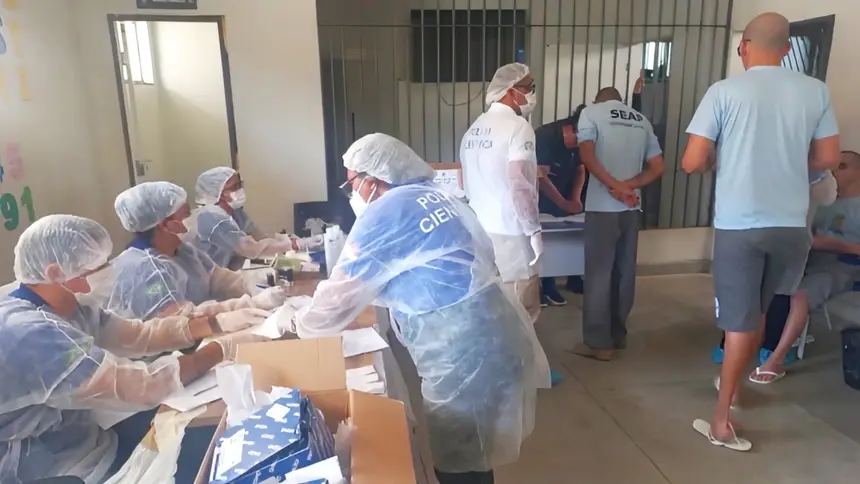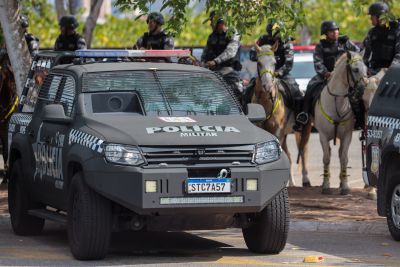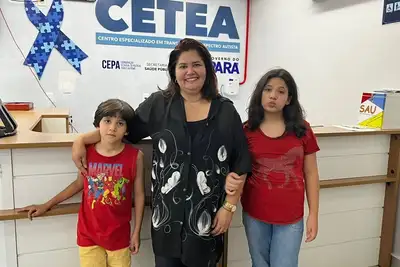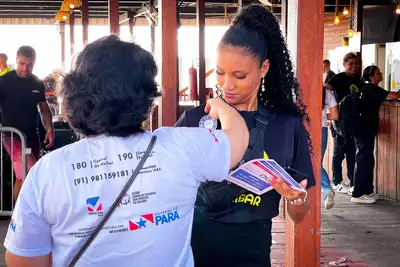Forensic Genetics Laboratory conducts genetic profile collection of detainees in 9 municipalities of Pará
The collection this year began in April, with a team of criminal experts who traveled to prison units in the municipalities of Santa Izabel, Mocajuba, Paragominas, Abaetetuba, Tucuruí, Redenção, Parauapebas, Cametá, and Breves
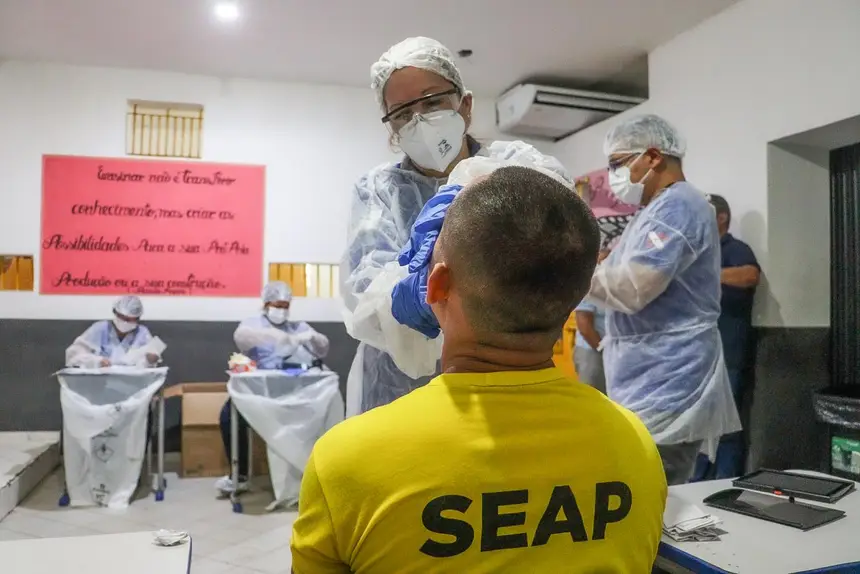
Criminal experts working at the Forensic Genetics Laboratory of the Scientific Police of Pará (PCEPA) have already conducted 11 DNA collections from detainees for the National Genetic Profile Bank (BNPG). The collections are part of an integrated action by the State Secretariat for Penitentiary Administration (Seap), through the Directorate of Biopsychosocial Assistance (DAB), and the PCEPA.
There were 933 collections just this semester. "The goal that the BNPG has set for us is one thousand collections per year, so the fact that we are almost reaching the annual goal in just a few months is very positive," commented Elzemar Rodrigues, manager of the Forensic Genetics Laboratory and administrator of the Genetic Profile Bank in Pará.
The collection this year began in April, with a team of criminal experts who traveled to prison units in 9 municipalities in Pará, such as Santa Izabel, Mocajuba, Paragominas, Abaetetuba, Tucuruí, Redenção, Parauapebas, Cametá, and Breves.
Currently, there are 10,615 registrations in the National Genetic Material Collection Database, collected over the last 10 years in the prison units of Pará. "This collection is important not only to identify crimes but also to deter future situations, because once they (detainees) know that their profile is there, they also become wary of committing new crimes and being identified," explained the manager.
According to the XXII Report of the Integrated Network of Genetic Profile Banks, from May of this year, the BNPG has already presented more than 10,000 matches.
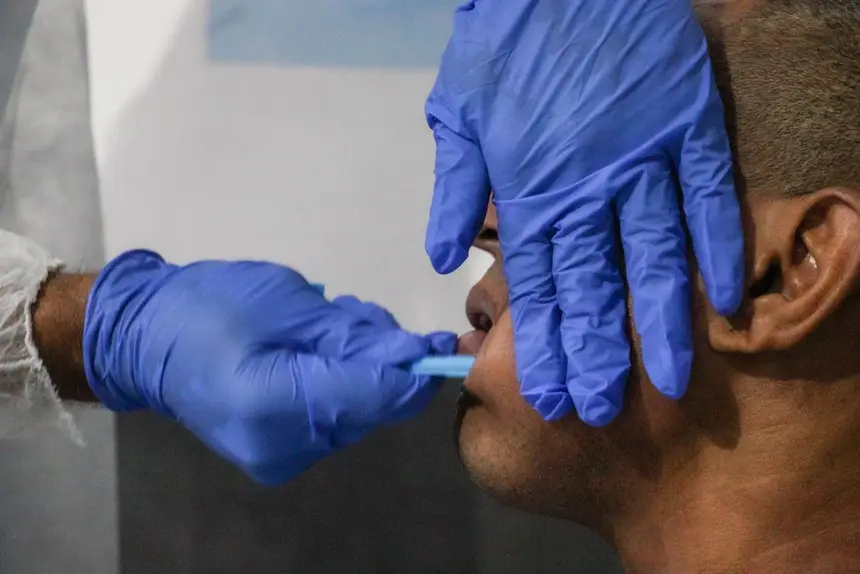
National scenario - The objective is to send information to the National Genetic Profile Bank (BNPG), so that there is a comparison of the DNA of people deprived of liberty with the genetic traces found at crime scenes, in search of material evidence that can contribute to the elucidation of crimes.
DNA samples are collected using a swab (absorbent material attached to a stick), passed in the mouth to extract saliva. After meticulous technical work done by forensic assistants and criminal experts, the data is entered into the BNPG. Searches are conducted in databases from other states and the Federal District, as well as searches with profiles sent by other countries via Interpol.
"For us at the Scientific Police, it is very important to carry out this type of procedure together with the experts from our Forensic Genetics Laboratory in partnership with Seap, because in addition to feeding the national genetic profile bank, we will have a DNA arsenal ready to compare any trace, and thus help solve and reduce crime rates in our State and in Brazil," emphasizes the general director of PCEPA, criminal expert Celso Mascarenhas.
Text: Amanda Monteiro/Ascom PCEPA


